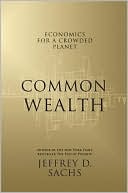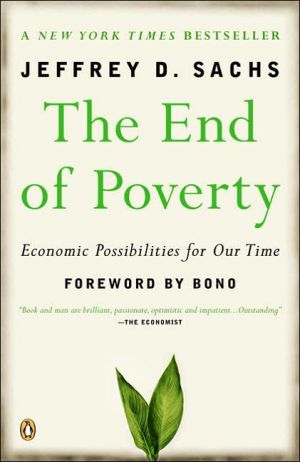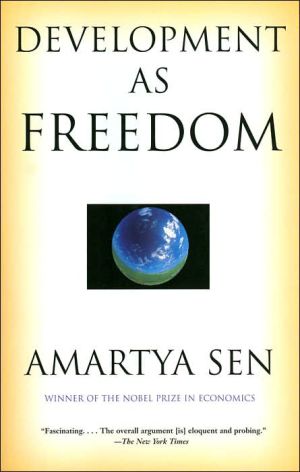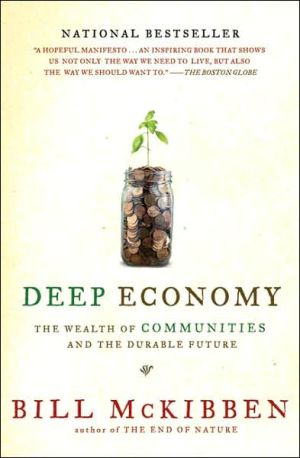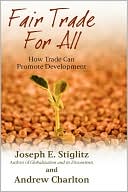The Law-Growth Nexus: The Rule of Law and Economic Development
An increasingly popular view holds that institutions—in particular, the rule of law—are the keys to unlocking the developing world's full growth potential. But what exactly does this mean? Which legal institutions matter and why? How can policymakers use this knowledge to promote growth? In The Law-Growth Nexus, Kenneth Dam brings five decades of experience as a legal scholar and policymaker to bear upon these questions.\ After reviewing the burgeoning literature on legal institutions and...
Search in google:
Much of what we call the developing world has stopped developing, while growth in other regions has slowed. In the past, economists prescribed liberalization and privatization to governments seeking to improve their economic performance. But dissatisfaction with these remedies in many countries has left policymakers searching for new methods to jumpstart growth.In The Law-Growth Nexus, Kenneth Dam explores the newly ascendant view that institutions-in particular, the rule of law-play a critical role in determining which economies thrive and which lag behind. Drawing on five decades as a legal scholar and policymaker, the author explains what policymakers need to know about the relationship between legal institutions and economic growth. He defines the essential concepts that make up the rule of law-property rights, contracts, and enforcement—and analyzes the roles they play in the markets for land, equity, and debt.Dam uses an extended analysis of China to assess the importance of the rule of law. This case study illustrates several of the book's central themes, including the difficulty of building a strong, independent judiciary and a first-class financial sector.Could new or better legal institutions help unlock the growth potential of the developing world? In exploring this question, The Law-Growth Nexus goes beyond regression results to examine the underlying mechanisms through which the law, the judiciary, and the legal profession influence the economy. The result is essential reading for analysts and policymakers facing the challenges of legal and economic reform. Foreign Affairs It has long been evident, even to economists, that economic development involves much more than a country's adopting the appropriate growth-enhancing policies. A lively scholarly debate has developed over the role of institutions, including the legal system, on the course of development. Dam, a professor of law at the University of Chicago and formerly a high official in several U.S. administrations, here critically reviews that extensive literature and offers his own judgments on the role of the rule of law in development, especially in limiting predation by the ruler or the state. He emphasizes the importance of a truly independent judiciary that can enforce contracts, a regulatory system that effectively protects minority shareholders, and a regulatory and supervisory system that encourages banks, which extend the bulk of credit in developing countries, to operate according to commercial, rather than political, criteria. A final chapter examines China as a potential counterexample to the claim that successful development requires an effective rule of law. Since China still faces formidable challenges in moving from a poor to a middle-income country, the jury is still out.
\ The Law-Growth Nexus\ The Rule of Law and Economic Development \ \ By Kenneth W. Dam Brookings Institution Press \ Copyright © 2006 \ Brookings Institution Press \ All right reserved.\ \ ISBN: 978-0-8157-1720-1 \ \ \ Chapter One Why This Book? \ Emerson once laid it down as a rule that when friends meet after a time apart, they should greet each other by asking one question: Has anything become clear to you since we were last together? The sense of his rule applies to the subject of the book now in the hands of the reader.\ In the last decade the issue of how best to improve the rate of economic growth of the poorer nations of Africa, Asia, and Latin America has come to be approached along lines quite different from those in the decades after the Second World War. Economists in the academy and practitioners in national and international aid agencies-as well as influential participants in public debate-now increasingly hold that neither traditional development theory nor neoclassical economics fully answers the complex problems of economic development. The ascendant view is that institutions-as the term is used in what has become known as neoinstitutional economics-matter for economic development, and that they do so in a major way.\ Neo and Other Economics\ An interest in institutions is not new. A movement focused on business enterprises, labor unions, and other organizations that flourished in the United States in the 1920s and 1930s is associated with the names of Thorstein Veblen and John R. Commons. The movement, which relied heavily on description rather than mathematics, failed to gain respect among those neoclassical economists who focused on economic concepts rather than on organizations. The neoclassical school of economics can be thought of as an updated version of the teachings of Adam Smith and later "classical economists" such as David Ricardo, John Stuart Mill, and Alfred Marshall. Neoclassical economists gradually extended their reach beyond microeconomics (the initial focus of classical economics) into macroeconomics (involving issues such as inflation and employment) and even into adjacent social science fields. When a new focus on institutions-concerned with the way rules, contracts, and property function in the economy-developed in the second half of the twentieth century, it was called neoinstitutional economics. The objective of the name was both to distinguish it from the institutional economics of the prewar period and to contrast it with neoclassical economics.\ Neoinstitutional economics is associated with the names of two Nobel Prize winners of the 1990s, Ronald Coase and Douglass North. Ronald Coase's Nobel citation states that he won the prize "for his discovery and clarification of the significance of transaction costs and property rights for the institutional structure and functioning of the economy." North's contribution, according to his Nobel citation, was to renew "research in economic history by applying economic theory and quantitative methods in order to explain economic and institutional change."\ North's influential 1990 work-Institutions, Institutional Change, and Economic Performance-used history to illuminate the economic and institutional factors that have driven economic growth since the Middle Ages and that contribute to economic development in the third world today. In his analysis institutions means rules-not just legal rules but social norms and other determinants of behavior-rather than organizations.\ North's work, like all major intellectual achievements, had antecedents. Two equally remarkable figures who deserve consideration in the history of what is now called neoinstitutionalism are Max Weber and Friedrich Hayek. While Weber, usually thought of as a sociologist, is renown for his work in many fields, two works stand out. The most famous is The Protestant Ethic and the Spirit of Capitalism, which was a forerunner in considering the relevance of culture to economic growth. But perhaps more directly relevant to this book is Law in Economy and Society.\ Perhaps a more immediately important predecessor is Hayek, also a Nobel Prize winner. He is particularly interesting in the context of any inquiry into legal institutions because of his focus on legal ideas, well conveyed in the titles of two of his most ambitious works, The Constitution of Liberty and Law, Legislation and Liberty (published in three volumes).\ Just as North's work had predecessors, so too many scholars have tried to expand on his concept of institutions. Dani Rodrik, whose work is relied on at various points in this book, has written on the various forms that institutional solutions take in different countries. One message of Rodrik's work is that there is no single institutional route to economic development. Masahiko Aoki, building in part on the experiences of such diverse venues as Japan, China, and Silicon Valley, has sought to broaden the perspectives of neoinstitutionalism to include private sector arrangements. More generally, Aoki emphasizes relations among institutions as the rules of the game, organizations-the players in the game, including not just governments and private parties-and the equilibrium these various players achieve over time across various domains.\ Since the purpose of this book is not to expand on the intellectual, historical, and economic aspects of neoinstitutionalism but rather to unpack its implications for legal institutions, the focus in later chapters is on the various legal issues that arise in any effort to spur economic growth through legal reform.\ Stages in Economic Development Thinking\ After World War II, and especially during the decades when many former colonies of Great Britain and France (as well as Belgium, the Netherlands, and Portugal) won their independence, practitioners in the field of economic development concerned themselves with the factors that might bring about economic growth in those former colonies, most of which were quite poor. Three major stages in economic development thinking can be defined, albeit with considerable oversimplication and loss of interesting detail.\ Initially, during the first few decades, the focus was on the simple economic proposition that production was a function of capital and labor. The poor countries of this time usually had a large supply of labor, with many unemployed or at least underemployed workers, and capital was scarce. What could be simpler than transferring capital to these countries, thereby presumably increasing production? Economic aid programs in the developed world and the expansion of World Bank and regional development bank lending were directed toward this goal.\ Regrettably, many of the developing countries viewed industrialization as the primary goal and to that end cut themselves off from international trade by pursuing import substitution policies while using massive public expenditures to build infrastructure and to subsidize new industries. One unfortunate result was serious inflation in many countries, which in turn (especially with the fixed exchange rates that were the rule in those days) led to exchange controls to prevent the currency from depreciating. The exchange controls further reduced international trade.\ The response to these problems, in the second stage of economic development thinking, was to apply the insights of neoclassical economic policy, not just to opening domestic economies to imports and to freeing prices from controls but also especially to macroeconomic stabilization. At the policy level these goals became embedded in what was called structural adjustment lending, where loans were made not for projects but for general government support in exchange for commitments to economic reform, prominently macroeconomic reform. The side effect of the focus on economic stability, however, was perceived to be (and often proved to be) slower economic growth than had been enjoyed in earlier decades. Emphasis broadened in the 1990s to include so-called microeconomic reforms, including privatization of state-owned industries and reforms of financial and labor markets.\ The search for new solutions led to an increasing focus on how poorly many developing country governments functioned and especially on widespread inadequacies, even corruption, of public regulatory bodies and of the legal system. As this emphasis on the weaknesses of developing country governments grew, the intellectual rise of neoinstitutional economics seemed to provide an answer. Institutions came to matter in this third stage of economic development thinking. It is with the policy implications of this third stage, especially insofar as legal institutions are involved, that this book is primarily concerned.\ Legal Institutions: The Law and Finance Literature\ Toward the end of the 1990s, a group of economists, specializing in finance and building upon the emerging emphasis on institutions, conducted cross-country econometric research to determine what legal rules best contributed to strength in the financial sector and thereby to economic growth. Their studies in Law and Finance represented an unprecedented focus on microeconomic analysis of the influence of legal rules on economic growth. Their seminal work led to an explosion of research by other economists and by lawyers into the role of legal institutions in economic development.\ A major conclusion reached in their studies was that countries whose legal systems originated in the English common law have enjoyed superior per capita income growth compared with so-called civil law countries, whose law is based on European codes, especially those countries whose law is based on the Napoleonic codes and hence on French law. As this book shows, their conclusions have drawn criticisms on various grounds, especially because many civil law countries-not only those in Western Europe but also some developing countries-have enjoyed superior economic growth and because many common law countries in the third world have done quite poorly in the economic growth tables.\ Despite such criticisms of these economists' specific results, the idea that institutions and especially legal institutions are crucial to the process of economic development is now broadly accepted in the academies and in the research departments of international financial institutions such as the World Bank. The term "crucial" is not meant to imply, however, that legal institutions are necessarily more important than other aspects of government policy. Educational and health care institutions have their own crucial roles to play in advancing economic growth. One can say that they complement good legal institutions in the way that separate fingers of the hand combine to make for a solid grip; it is pointless to argue over which finger has the highest priority.\ The Dual Aims of This Book\ What has just been said lies behind the dual aims I have set for this book. The first is to analyze the reasons why legal institutions are important to economic development, and what aspects of the law are of particular importance. The second and related aim is to try to grapple with a task too seldom addressed-perhaps because it is shot through with slippery imponderables. The task I have undertaken is to lay out the policy implications and especially the policy means for following through on the new accent on legal institutions as a major factor in economic development. In short, the key question I address is what it means to act on the premise that the rule of law is essential to economic development.\ I bring to the matter at hand the perspective of a law professor in the law and economics tradition, an early interest in comparative law, and extended experience as a policymaker at the "nuts and bolts" subcabinet level in three U.S. administrations between 1971 and 2002. I know through personal involvement in traditional debates over economic development that it is easy and convenient for policymakers to call for more economic assistance to distressed countries and to insist on their adherence to better fiscal and monetary policies. Today it is even easier to deliver sermons about the need for "good government"-or, to use the current phrase, "better governance."\ I also know that the first instinct of lawyers, which is simply to transplant world-class legal institutions to developing countries, will most likely produce little more than a harvest of dead leaves. The institutions important to development are more likely to bear fruit if they evolve out of roots already growing in the soil of particular countries. How to do that systematically is, of course, still well beyond the current state of the art. Nevertheless, despite the problems and the complexities of the analysis to unfold in this book, there is an urgent need for policymakers, in both the developed and developing worlds as well as in the international institutions that are the financial and technical intermediaries, to grasp the relationship between institutions-legal institutions in particular-and economic growth. The reason can be compressed into a single declarative sentence. Parts of the developing world have ceased to develop. Put differently, per capita incomes are failing to increase significantly in all too many countries. And to use a more popular term, the poor in those unfortunate countries remain trapped in poverty.\ Economic Regulation and Corruption\ If everything must be treated in a book, nothing can be. To limit the inquiry to manageable proportions, I have necessarily and regretfully excluded from the discussion certain topics that fall within the framework of law and institutions.\ In rough order of importance, the first topic that is not discussed is economic regulation of business, labor markets, land use, and new business formation. The World Bank has focused particular attention on this last topic-the question of how many, and what kind of, legal steps must be taken to start a new business. The reasons for this focus can be deduced from two extracts from a recent World Bank study:\ It takes 2 days to start a business in Australia, but 203 days in Haiti and 215 days in the Democratic Republic of Congo. There are no monetary costs to start a new business in Denmark, but it costs more than 5 times income per capita in Cambodia and over 13 times in Sierra Leone. Hong Kong (China), Singapore, Thailand, and more than three dozen other economies require no minimum capital from start-ups. In contrast, in Syria the capital requirement is equivalent to 56 times income per capita, in Ethiopia and Yemen, 17 times, in Mali, 6 times. Teuku, an entrepreneur in Jakarta, wants to open a textile factory. He has customers lined up, imported machinery, and a promising business plan. Teuku's first encounter with the government is when registering his business. He gets the standard forms from the Ministry of Justice, and completes and notarizes them. Teuku proves that he is a local resident and does not have a criminal record. He obtains a tax number, applies for a business license, and deposits the minimum capital (three times national income per capita) in the bank. He then publishes the articles of association in the official gazette, pays a stamp fee, registers at the Ministry of Justice, and waits 90 days before filing for social security. One hundred sixty-eight days after he commences the process, Teuku can legally start operations. In the meantime, his customers have contracted with another business.\ In truth, economic regulation has not received the attention it deserves, in part perhaps because it is often a highly technical subject, with the nature of regulation differing from sector to sector and from regulatory agency to regulatory agency, even within a single government. A recent book by William Lewis, based on the work of the McKinsey Global Institute, argues rather powerfully that a prime cause of development failure is overregulation. He refers not to typical public utility regulation so well known to economists, political scientists, and lawyers, but rather to regulation of the minutiae of everyday business life. To take two examples, Lewis points out that India has reserved hundreds of products for small-scale producers (which in practice are so small that they are high-cost producers) and that Indian zoning laws rule out large retail stores of the kind so well known in the developed world. Since average per capita incomes are ultimately correlated with productivity levels, economic regulation is a neglected aspect of legal institutions. (After all, regulation is usually written into law and often administered by a special regulatory body with enforcement responsibilities.)\ (Continues...)\ \ \ \ \ Excerpted from The Law-Growth Nexus by Kenneth W. Dam Copyright © 2006 by Brookings Institution Press. Excerpted by permission.\ All rights reserved. No part of this excerpt may be reproduced or reprinted without permission in writing from the publisher.\ Excerpts are provided by Dial-A-Book Inc. solely for the personal use of visitors to this web site.\
Foreword ixAcknowledgments xiWhy This Book? 1Neo and Other Economics 1Stages in Economic Development Thinking 3Legal Institutions: The Law and Finance Literature 5The Dual Aims of This Book 6Economic Regulation and Corruption 7Economic Growth: The Big Picture 9Perspectives on Law and Economic Development 11Where Does the Rule of Law Fit in Economic Development? 13The Content of the Rule-of-Law Concept 16What Is the Problem that a Rule-of-Law Approach Addresses? 17The Role of Foreign Assistance 19Some Preliminary Questions about Institutions 22An Advance Look at Some Conclusions 23Legal Institutions, Legal Origins, and Governance 26Common Law 26Civil Law 29Legal Origins as a Theory of Development 31Preliminary Questions 35Some Anomalies 38Legal Origins and Public Law 45Governance as an Alternative Theory 49Competing Explanations 56Geography 57Culture 60Values and Cultural Regions 66Legal Culture 68Institutions and History 70Early European Substitutes for the Rule of Law: Boycotts and Reputation 72The Nation-State 76Predation and the Rule-of-Law Dilemma 77Legal Evolution in England 78Assessing the Glorious Revolution 84Constitutions 86Nonconstitutional Elements of the Rule of Law 87Enforcement, Contracts, and Property 91Judiciary 93An Effective Judiciary: The Question of "Formalism" 96Judicial Efficiency 100Court Decisions as Law 105Structural Independence 106Behavioral Independence 111Administrative Review 118Legal Origins and Independence of the Judiciary 121Contracts and Property 123Long-Term Contracts 124The Relation of Contracts to Property 128Property 129Land 134Legal Uncertainty 135Urban Real Estate 138Sources of Legal Uncertainty 139Issues in Titling 141Transferability: Precedents and Problems 144Implementation Problems 147Communal Land 150Another Look at History 152From Communal Property to Individual Property 153The Financial Sector 154Equity Markets and the Corporation 163The Corporation in Historical Perspective 163Advantages of the Corporation Today 167Legal Origins Analysis of Equity Markets 169Corporate Governance 177Dual Class Shares and Pyramids 182The Blockholder Phenomenon 184Legal Protection 185Securities Laws 187Credit Markets, Banks, and Bankruptcy 190The Role of Banks 190Directed Lending, Crony Capitalism, and Related Lending 191The Relationship of Creditors Rights and Bankruptcy 194Secured Credit 198The Relevance of Legal Origin 204Economic Development, Law and Finance, and Legal Origin 207Culture and Religion 209What Is Meant by a Common Law Origin in Creditors Rights? 210U.S. Corporate Reorganization Practices 212A Survey of Developing Countries 213Policy Implications 215Credit Registries 218A Review of Some Key Themes 221The Implications of a Rule-of-Law Approach to Economic Development 223Implementing an Institutional Approach 224Law and Finance: A Reprise 225The Judiciary 228Equity Markets 229Credit Markets 229A Personal Caveat 230A Parting Challenge 231China as a Test Case 233China's Ranking on a Law and Finance Scale 234World Bank Rankings 235The Chinese Economy: Is a Slowdown in Growth Ahead? 237A Closer Look at the Chinese Growth Record 243Enforcement and the Chinese Judiciary 247The Transition in China's Economic and Legal Structure 255The Rise of Stock Exchanges and Securities Regulation 260Corporate Governance 265Credit Markets 267Legal and Institutional Reform 268Guided Evolution? 273References 279Index 313
\ Foreign AffairsIt has long been evident, even to economists, that economic development involves much more than a country's adopting the appropriate growth-enhancing policies. A lively scholarly debate has developed over the role of institutions, including the legal system, on the course of development. Dam, a professor of law at the University of Chicago and formerly a high official in several U.S. administrations, here critically reviews that extensive literature and offers his own judgments on the role of the rule of law in development, especially in limiting predation by the ruler or the state. He emphasizes the importance of a truly independent judiciary that can enforce contracts, a regulatory system that effectively protects minority shareholders, and a regulatory and supervisory system that encourages banks, which extend the bulk of credit in developing countries, to operate according to commercial, rather than political, criteria. A final chapter examines China as a potential counterexample to the claim that successful development requires an effective rule of law. Since China still faces formidable challenges in moving from a poor to a middle-income country, the jury is still out.<\ \ \ \



